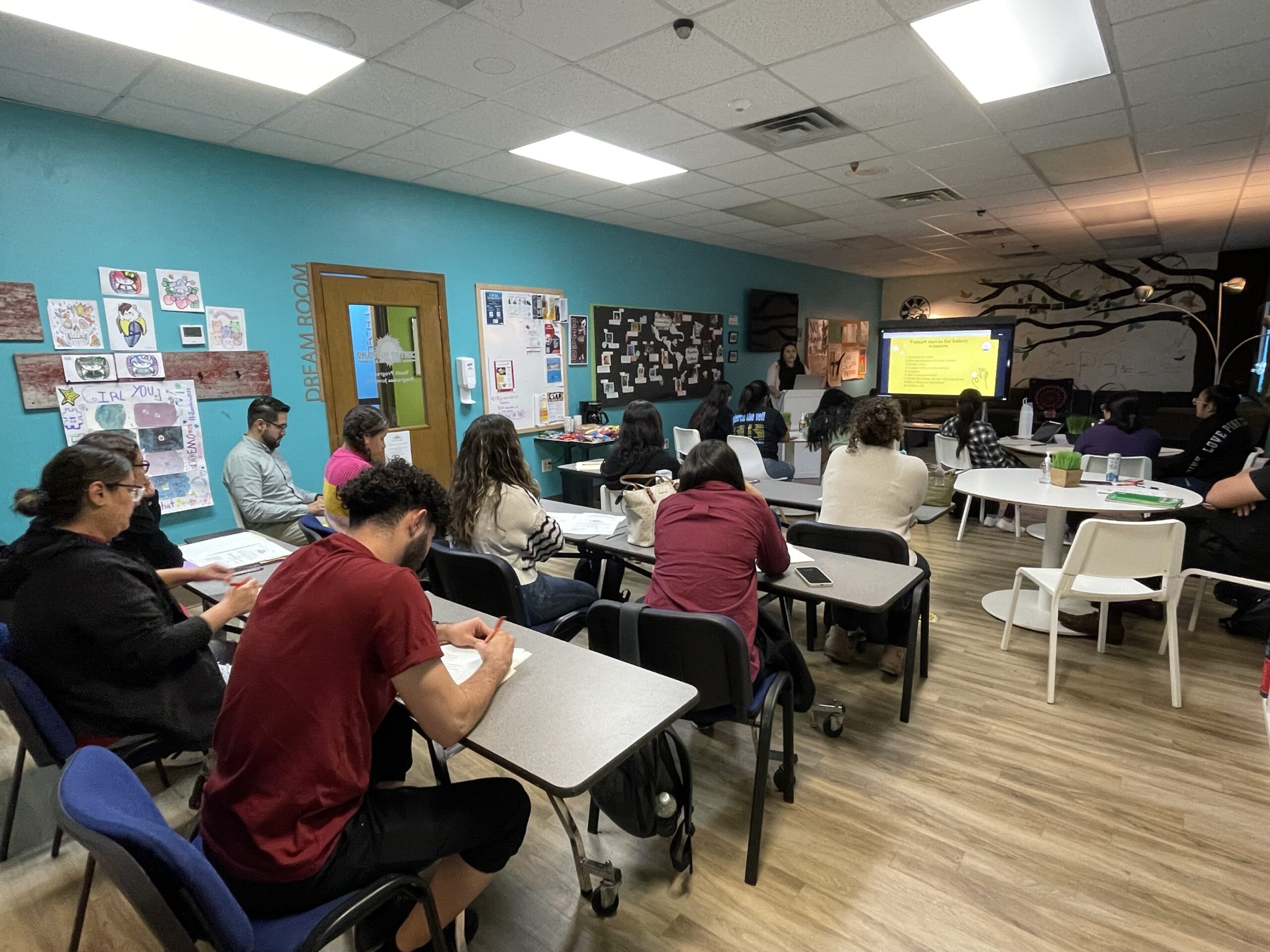Democrats and voting rights advocates are calling for Robert Spindell, member of the Wisconsin Elections Commission, to resign after celebrating low voter turnout among marginalized communities in the 2022 elections.
“…We can be especially proud of the City of Milwaukee (80.2% Dem Vote) casting 37,000 less votes than cast in the 2018 election with the major reduction happening in the overwhelming Black and Hispanic areas,” Spindell wrote in an email to fellow Republicans that was shared by Urban Milwaukee on Jan. 10.
Spindell, who served as a fake elector for former President Donald Trump, is now facing immense backlash from state Democratic leaders and community organizers for his comments. “We don’t need election officials bragging about voter suppression, encouraging it enthusiastically as he has done,” Democratic state Senator Kelda Roys told WI Latino News. “He needs to resign or Senate Majority Leader Devin LeMahieu, who appointed him, needs to remove him.”
Spindell is yet to resign or be removed from his post, and denies that he was celebrating voter suppression in his email. Christine Neumann-Ortiz, Executive Director of Voces De La Frontera in Milwaukee, is unconvinced.
“He’s proud that voter suppression efforts are working to limit the voting rights of Latinos and other people of color,” she said.
For Neumann-Ortiz, Spindell’s lauding of voter disenfranchisement represents a pattern of behaviors and beliefs of Wisconsin’s Republicans.
“Here in Wisconsin, the Republican Party has really been dominated by the interests of big business,” Neumann-Ortiz said. “To hold power, they were part of supporting the architecture of one of the most gerrymandered states in the country.”
Wisconsin is victim to some of the most “extreme partisan gerrymanders in the United States,” according to Princeton University’s gerrymandering project.
Republicans control nearly two-thirds of the state’s legislative seats, despite a strong Democratic presence. Voters reelected Democrat Gov. Tony Evers in 2022, beating his Republican challenger 51 percent to 48 percent. In eight of the last nine presidential elections, the Democratic candidate won the statewide vote in Wisconsin.
“If one party was winning the majority of the statewide vote, you would think that they would be represented about the same in the state house,” said Sam Liebert, Wisconsin State Director of All Voting is Local.
Liebert says the gerrymandering that plagues Wisconsin disenfranchises the state’s marginalized voters the most.
“It’s called ‘cracking and packing,” Liebert said. “You have a lot of brown and Black people who are in districts that are 80 percent plus Democratic. But then, most of the Republican districts are 53, 54, 55 percent.”
With Republicans controlling the gerrymandered legislature, Roys says that lawmakers snowball their suppression efforts to retain power by making it more difficult for voters to cast their ballots.
“Over the last 12 years… the gerrymandered Republican legislature has worked systematically to limit access to early voting and absentee voting by implementing voter ID laws,” Roys said. “We know in Wisconsin that people in urban areas are much less likely to have driver’s licenses, and that’s the primary ID that people need to vote.”
Wisconsin’s voter ID law, which was passed in 2011 under former Republican Gov. Scott Walker, is among the strictest in the country. It’s widely credited as the reason the state’s voter turnout was so low in the 2016 election, particularly among racial minorities in urban areas.
But in the 2022 election, state Sen. LaTonya Johnson said that voting in Wisconsin was even more stringent.
“The ballot drop boxes that were legal during the presidential election were deemed to be illegal for this election,” Johnson said. “Then, they made sure that absentee voting was taken down from six weeks to two weeks – we used to have six weeks to vote absentee.”
State Republicans performed well for their efforts in this past election. They achieved a supermajority in the state senate after a net gain of one seat, and fell just short of a supermajority in the state assembly with a net gain of three seats.
Their success was, at least in part, due to the tactics that made Spindell so proud in his email.
“The Republican strategy has been very apparent for a while now,” Neumann-Ortiz said. “Instead of trying to win Latino and African American voters on policy issues and the issues that they care about, they’ve used a strategy of both voter suppression and manipulation.”
Roys urges these voters not to be discouraged, but to fight back.
“Be angry,” Roys said. “Use that anger to organize your friends and neighbors to go vote. There’s a reason that they’re working so hard to silence your voices.”
Spindell did not respond to multiple requests by WI Latino News for comment.
_________________________________________________________________________________
Publisher’s Notes: WI Latino News produces stories focused on the responses to the social determinants of health and democracy.
Elections are instruments of democracy. Through voting, people can voice their opinions, express their hopes and aspirations, and ultimately influence the direction of their local, state, and national governments.
Voting in the United States can often be an inaccessible process preventing eligible voters, particularly in marginalized communities, from casting their ballot. This is especially true for Hispanic Latinos.
Cover photo: Connor Betts, Unsplash
_________________________________________________________________________________

Erik Uebelacker is a journalism graduate student at DePaul University and the editor-in-chief of the school’s newspaper, The DePaulia. Find him on Twitter at @Uebey.




